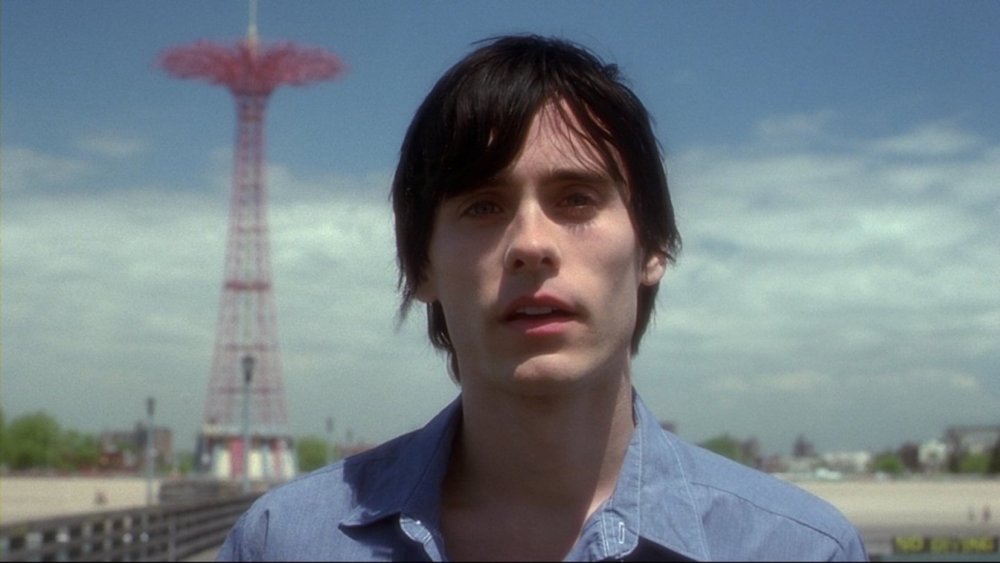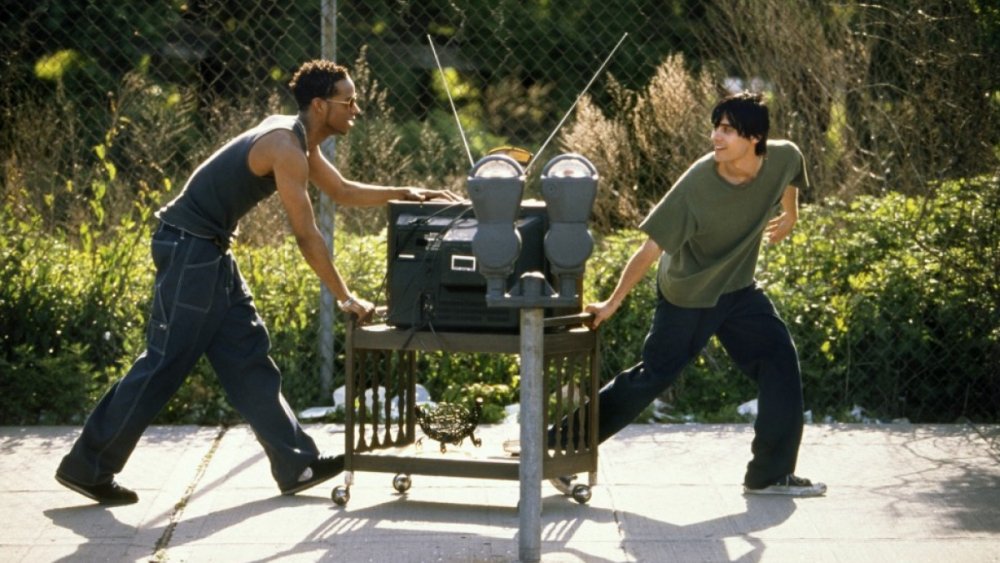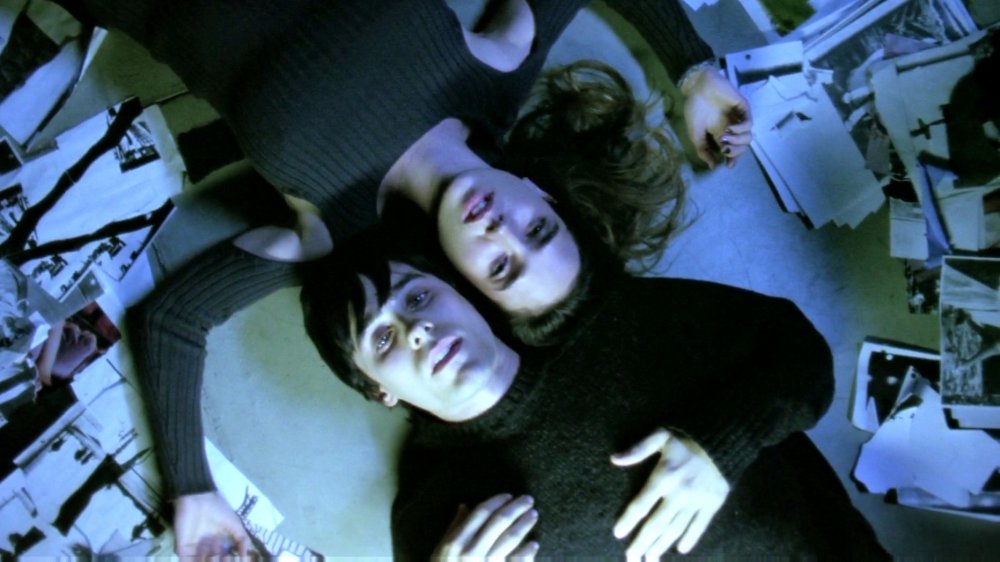One Of Jared Leto's Most Important Movies Was A Total Box Office Flop
Jared Leto has played the part of teen heartthrob, and a boundary-pushing method actor. He's a full-blown rock star, to boot. Over the course of his now decades-long career, Leto has also become one of the few actors around who's just as comfortable in the blockbuster realm as he is in low-budget features. That versatility alone has allowed the ever-adventurous performer to portray everything from fresh-faced teen heartthrobs (My So-Called Life) and troubled transgender Texans (Dallas Buyers Club), to iconic comic book villains (Suicide Squad's Joker) and smarmy eighties yuppies (American Psycho).
Along the way — and almost against his will — Leto has become one of the more revered, and frequently misunderstood, actors of his era, one who's very presence in a movie all but guarantees a certain degree of quality.
Leto's name does not, however, ensure a film will earn itself a hefty box-office take. And while producers are clearly hoping that will change with upcoming projects like Sony's Marvel villain flick Morbius, and Disney's long-in-the-works Tron 3, the past shows that even Leto's biggest would-be blockbusters (see 2018's sci-fi masterpiece Blade Runner: 2049) have generally underwhelmed, once ticket sales are tallied. Likewise, even some of Jared Leto's indie offerings have failed to make much of a splash at the box office.
That includes the actor's harrowing 2000 drug addiction drama Requiem for a Dream, even if the emotionally-wrenching film remains one of the most important of Leto's career.
The MPAA played a big role in Requiem for a Dream's failure
If you've been charting Leto's career, you know that prior to the release of Requiem for a Dream, the actor (plagued by legit heartthrob looks and a perpetually youthful veneer) had struggled mightily to be taken seriously in the dramatic realm. That struggle continued in spite of lauded filmmakers like Terrance Malick and David Fincher giving him a chance to showcase his skill with impressive supporting turns in critically-adored flicks like The Thin Red Line (1998) and Fight Club (1999).
As it was, Requiem for a Dream became the first of Leto's film to put his boundless talent front and center. And the actor responded, in kind, with one of the finest dramatic performances of his entire career. Requiem for a Dream remains one of the best movies Leto has ever appeared. And even if it's exceptional quality isn't reflected in its paltry box-office take (it netted just north of $7 million in its theatrical release, via Box Office Mojo), the film's solid Rotten Tomatoes scores (79% critics and 93% audience) are far more indicative of its cinematic attributes.
But just to circle back to Requiem for a Dream's underwhelming financials, you should know that the film's chances at success were hampered mightily before it was even released, due to a not-entirely-unearned NC-17 rating (via Screen Daily). Rather than cut the dark heart from his film to appease the MPAA, director Darren Aronofsky nobly released his own cut of Requiem for a Dream. In doing so, he severely limited how many theaters would even carry the film. Even so, because the film was produced for a reported $4.5 million, according to The Numbers, it still managed to turn a modest profit.
Requiem for a Dream is harrowing cinematic descent into the dark heart of addiction
That being said, Requiem for a Dream — adapted by indie stalwart Aronofsky from Hubert Selby Jr.'s gritty, soul-crushing novel — was always going to be a hard sell. That's mostly because it's one of the more brutally honest explorations of addiction ever committed to film. In fact, the various perils of addiction (and ensuing struggles of addicts) are so vividly depicted, the film is genuinely difficult to sit through even for a single screening. Even hardcore fans flinch at watching it a second time.
If you've managed to avoid the film entirely over the past two decades, Leto stars as Harry Goldfarb, a Coney Island, NY native with a serious taste for heroin. The film opens with Harry stealing a television from his own Mother (Ellen Burstyn in a role that should've netted her every award under the sun) to feed his habit. He quickly meets with his best pal Tyrone (Marlon Wayans) and his fashionista girlfriend Marion (Jennifer Connelly) to tie-off and shoot-up.
The "steal, fix, repeat" ritual fuels the tragedy throughout Requiem for a Dream, with the central trio's punishing spiral into uncontrollable addiction made all the more tragic as Mrs. Goldfarb unintentionally joins the fray with an non-narcotic addiction of her own. Yes, it's patently bleak territory which Aronofsky covers here, and he does so with a grueling, unflinching need to expose viewers to addiction horrors that feel all too real. This is exactly what elevates Requiem for a Dream above typical "junkie movie" fare, delivering a full-blooded monster flick in which addiction itself savagely devours the characters within.
And yes, you owe it to yourself to experience this monstrously underrated creature feature, at least once in your life.


